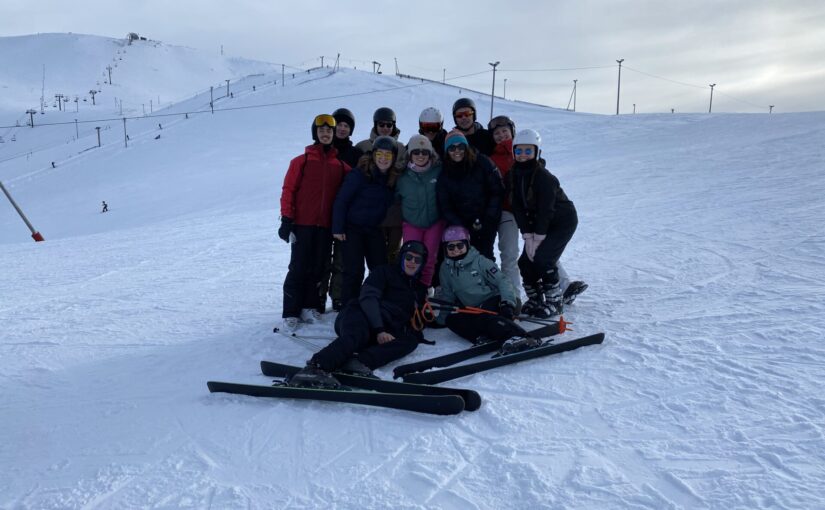Field of study in Wageningen: MSc Biology
Study period exchange: 06/01/2024 – 08/05/2024
Country (exchange): Iceland
City (exchange): Reykjavik
University (exchange): Haskoli Islands (University of Iceland
Faculty (exchange): Life and Environmental Sciences
2. Motivation for exchange
Why did you choose to go on study exchange?
I wanted to broaden my scope and experience how it is to live abroad. Furthermore I wanted to improve my English and move out of my comfort zone.
What is the reason you chose for this country/university?
Since Iceland is so small and remote, this is the biggest university in the city with the most opportunities.
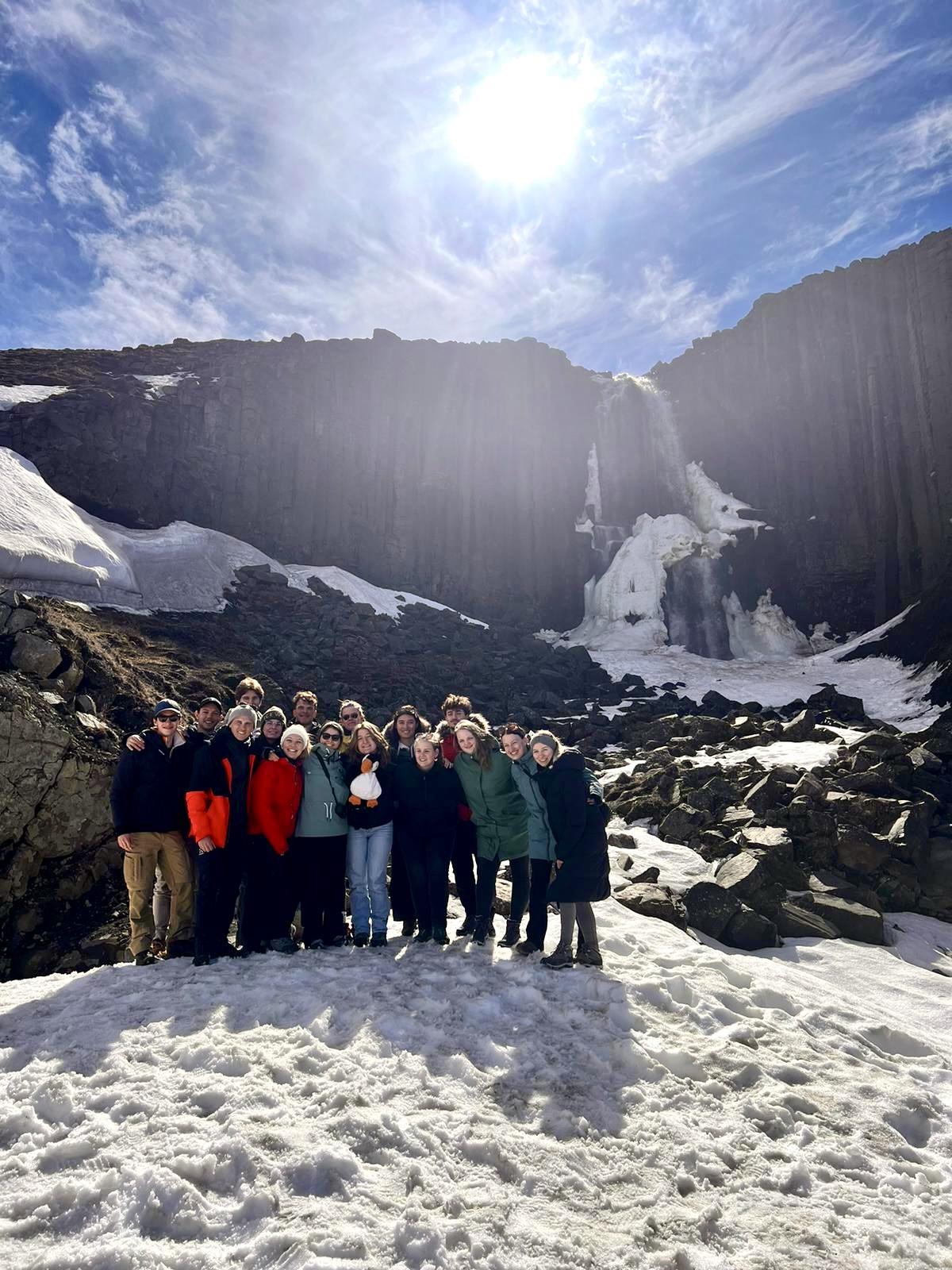
3. Accessibility to reach destination
Do you have any tips to reach your exchange destination?
From the airport you can take the conventional bus or a faster (but more expensive) bus. From the bus stop it is only 10 min walk to the student housing.
4. University and studying
Could you provide some general information about the followed courses?  *For the course description I could advice you to have a look at the course catalogue (https://ugla.hi.is/kennsluskra/index.php?tab=skoli&chapter=content&id=-2024&kennsluar=2024). They explain it well, and you can find the contact details of the teachers if needed.
*For the course description I could advice you to have a look at the course catalogue (https://ugla.hi.is/kennsluskra/index.php?tab=skoli&chapter=content&id=-2024&kennsluar=2024). They explain it well, and you can find the contact details of the teachers if needed.
What is it like to study there?
Although this is not true for all courses, the courses that I followed were really easy to pass. Compared to the study pressure for 1 ECTS at WUR, it is way lower.
What is the culture of the university?
The university feels really informal. The classes are small, and individual contact with the lecturer is no exception. The approach and communication is really informal, and the staff is always available, also after class. However, the university services open late and close early (for the exact times check the university website) so visiting staff from a specific department might be challenging timewise. Engagement with local students varies. It depends on what courses you choose, and how many Icelandic people are in your class. In the canteens and during events, Icelandic people tend to cluster, and in that case, it might be hard to become part of their group. However, Icelandic people are really kind and open, the only thing is that they most likely wont make the first move.
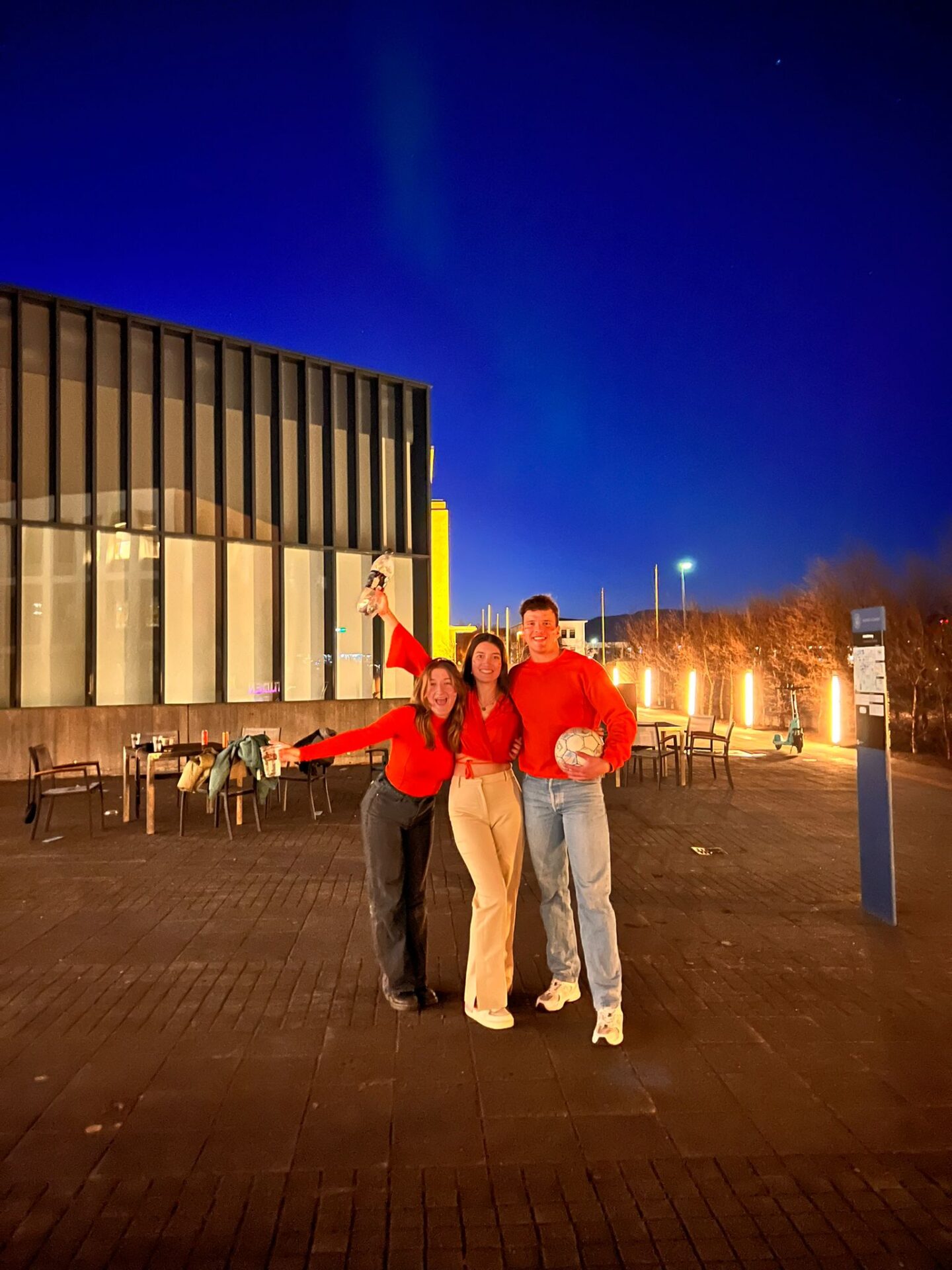
What does the university offer the student additionally?
They have canteens in all buildings and they have small university gym. It is small but sufficient enough for me, and it only costs €40 for a whole semester. The university also organised a bunch of “welcome events” which helped you to meet new people, get insight information and get to know the campus. All university housing buildings have laundry and drying machines free of charges.
5. Housing-travelling-living
What are the possibilities for housing?
There are different possibilities for housing, but I can strongly recommend applying for student housing in GAMLI GARDUR. This is the main student building, and this is the building in which most exchange students are located. Although I lived in another student complex, this building felt like home, and I spent most of my days and evenings there. Additionally, only when you apply for student housing, you are eligible to obtain housing benefits. This is NOT the case when you rent private.
What is the culture of the country like?
Local cuisines are not common… the typical Icelandic dishes are not common to eat, not even for Icelanders. The main cultural difference is that Icelandic people are quite closed, and they look grumpy at first. However, when you approach them they are really kind, are fluent in English, and are always willing to help.
Could you give some information about public transport infrastructure?
I lived on campus so I walked to the uni. From the university campus all major areas in the city are within walking distance. An alternative to walking are HOPP scooters, which are located all around the city for an affordable rental price. The only public transport in Iceland is buses. They are fairly well organised, but they do not reach all places. To go downtown from the campus, it is often faster to just walk. For places more outside of the city, the buses will get you there, but the connections are not always the best. If you decide to take a monthly card for the bus, you can get a student discount. You have to ask the student service desk to forward your student details to the bus company (KLAPID) in order to apply for this student discount.
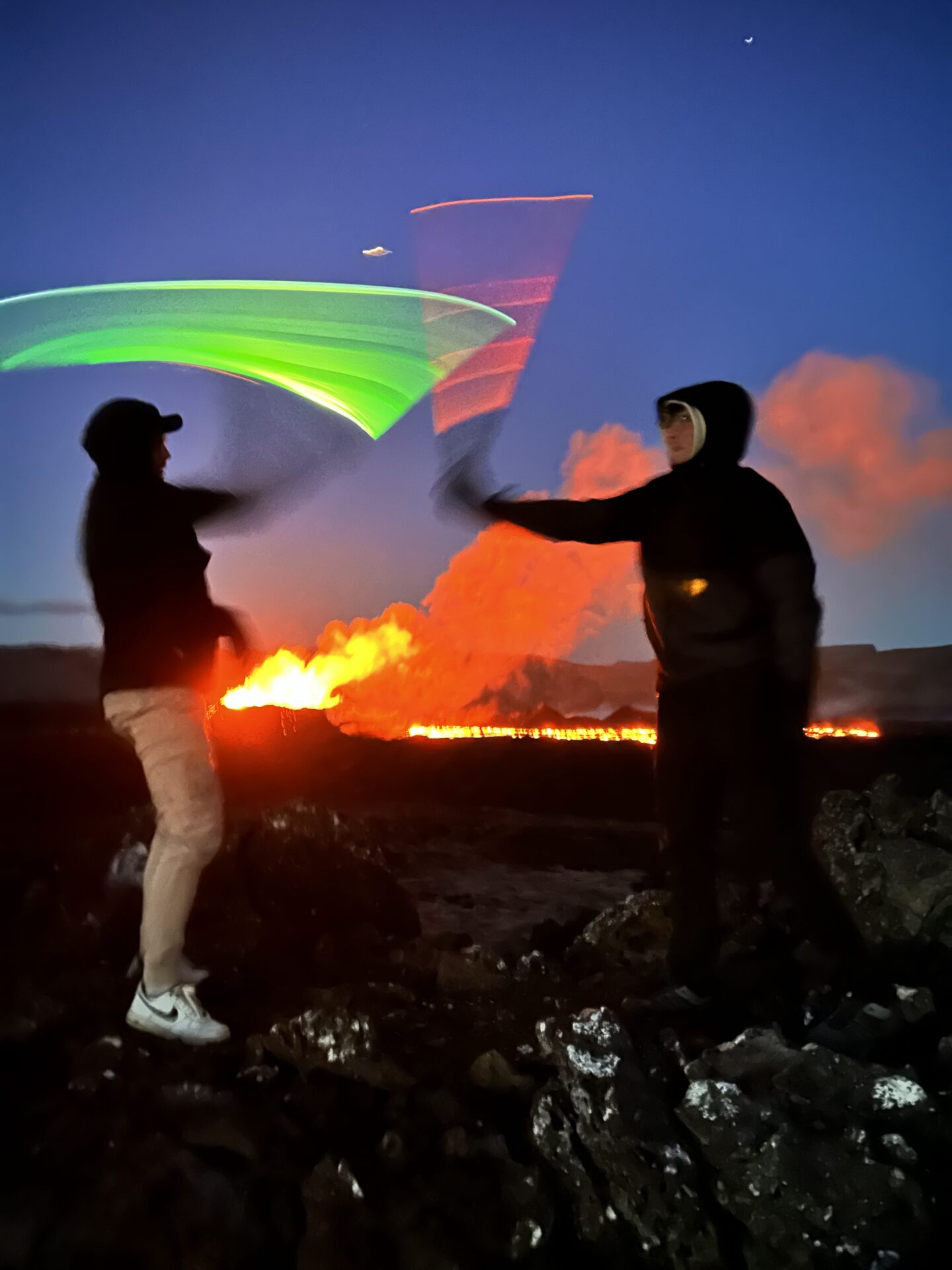
6. Expenses
Can you give an indication of your expenses for/during your exchange?

You might have heard it, but Iceland is expensive… really expensive. Especially the costs of living, groceries and eating out is expensive.
Additional remarks regarding expenses?
If you want to save money, I would recommend applying for student housing (not renting private) eventhough that might seem more expensive. Because only when you apply for student housing, you are eligible for housing benefits. The housing benefits are around €250 per month! In order to obtain them you’ve to request a Kenitala (Icelandic ID number) and get an Icelandic bank account. Furthermore for groceries go to either Kronan or Bonus, those are the cheapest supermarket. Going out for dinner is really expensive (although on Domino Tuesdays a medium sized pizza only costs €9!!). That’s why I did not go out for dinner that often. However, coffee can be quite cheap (around €3) and it often comes with free refill. The day trip expenses are really personal. I went on a lot of trips, and was barely home during the weekends. We often rented a car with a group of people and went to places and sometimes stayed for one or more nights. If you are going to rent a car, I could recommend bluecarrental.is (with the code bluereturn you get 10% discount). If possible see if anybody in the group has a creditcard that covers the own risk so you don’t have to purchase an extra insurance (reliability waiver) which costs about €30 per day extra. I would recommend taking the insurance since you will always damage the car during your trips because of the (bad) gravel roads, ice, stones and dust. If you are planning on staying for a longer period of time it might be more advantageous to buy a car instead of renting it….
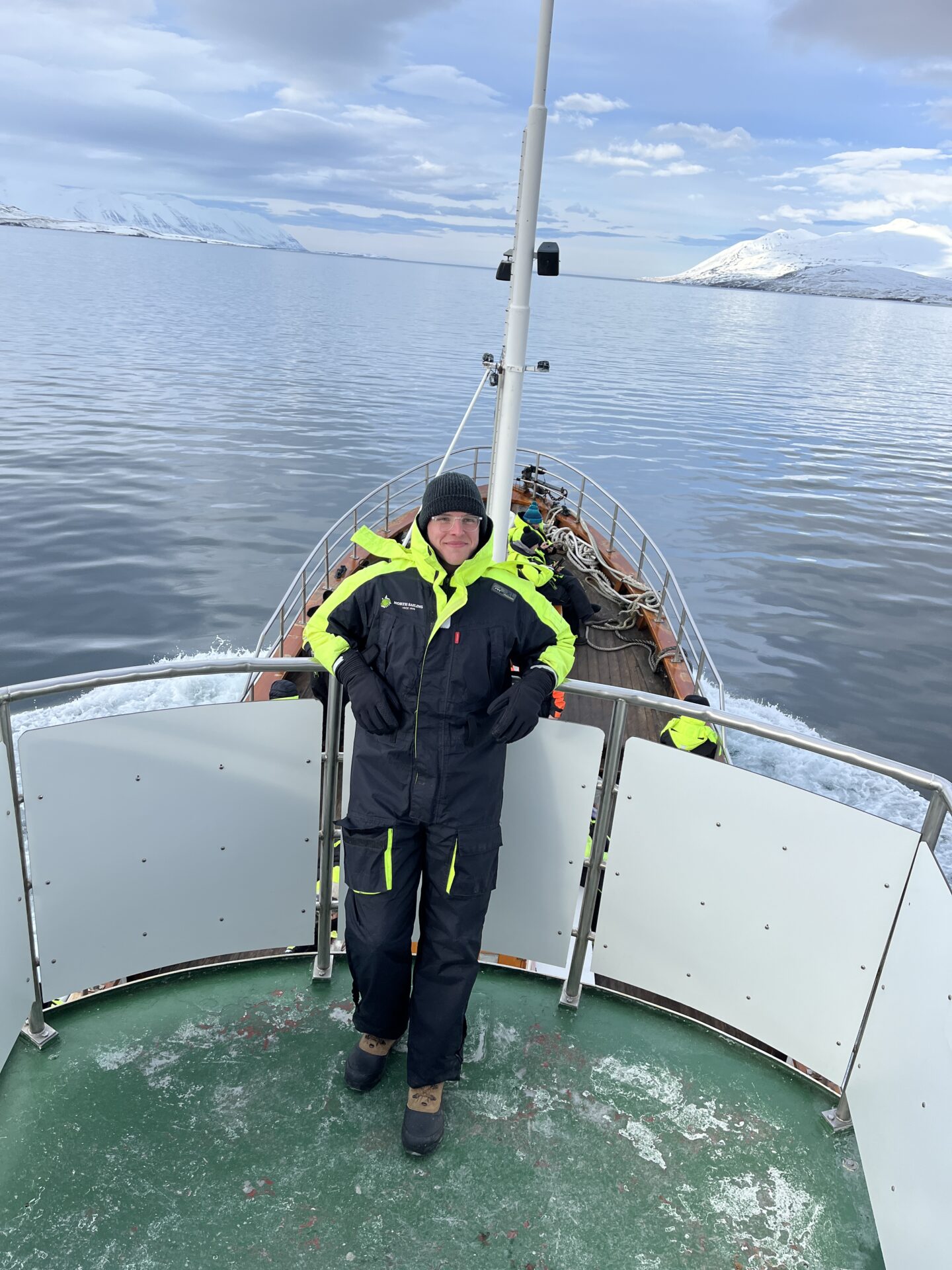
7. Free time
What are must-sees in the area?
I would recommend renting a car if you have a larger group. If you are alone, or with two people, I would recommend taking a bus tour. The most famous attraction nearby is the Golden Circle. Although this route captures some of the major highlights of the spots in the area, I would rather go to the Snæfelsness peninsula for a day instead of the Golden Circle. This peninsula is among one of my favourite places in Iceland, and with me are a lot of native Icelanders. It can easily be done in one day, although staying overnight enables you to see more and travel more relaxed. Furthermore I can recommend doing the Reykjadalur Hot Spring River hike. This is a once-in-a-lifetime experience. You can go there by bus, but than the hike is about 3km longer (one way), so I would recommend renting a car and driving to the starting point.
What does not appear in the travel guide, but is worth a visit?
A lot of sightseeing things that are not really “places” or are to remote are often not mentioned. However I would recommend talking to the locals and ask them for their favourite waterfalls, canyons, beaches, etc. because a lot of things are more remote but definitely worth a visit.
7. Challenges & best moment abroad
Did you experience any challenges?
I did not really have challenges. Maybe the biggest challenge is getting used to the fact that you’re living abroad and that you have to build a life in a different and new place. Even though this might sound and feel scary in the beginning, you will find your way.
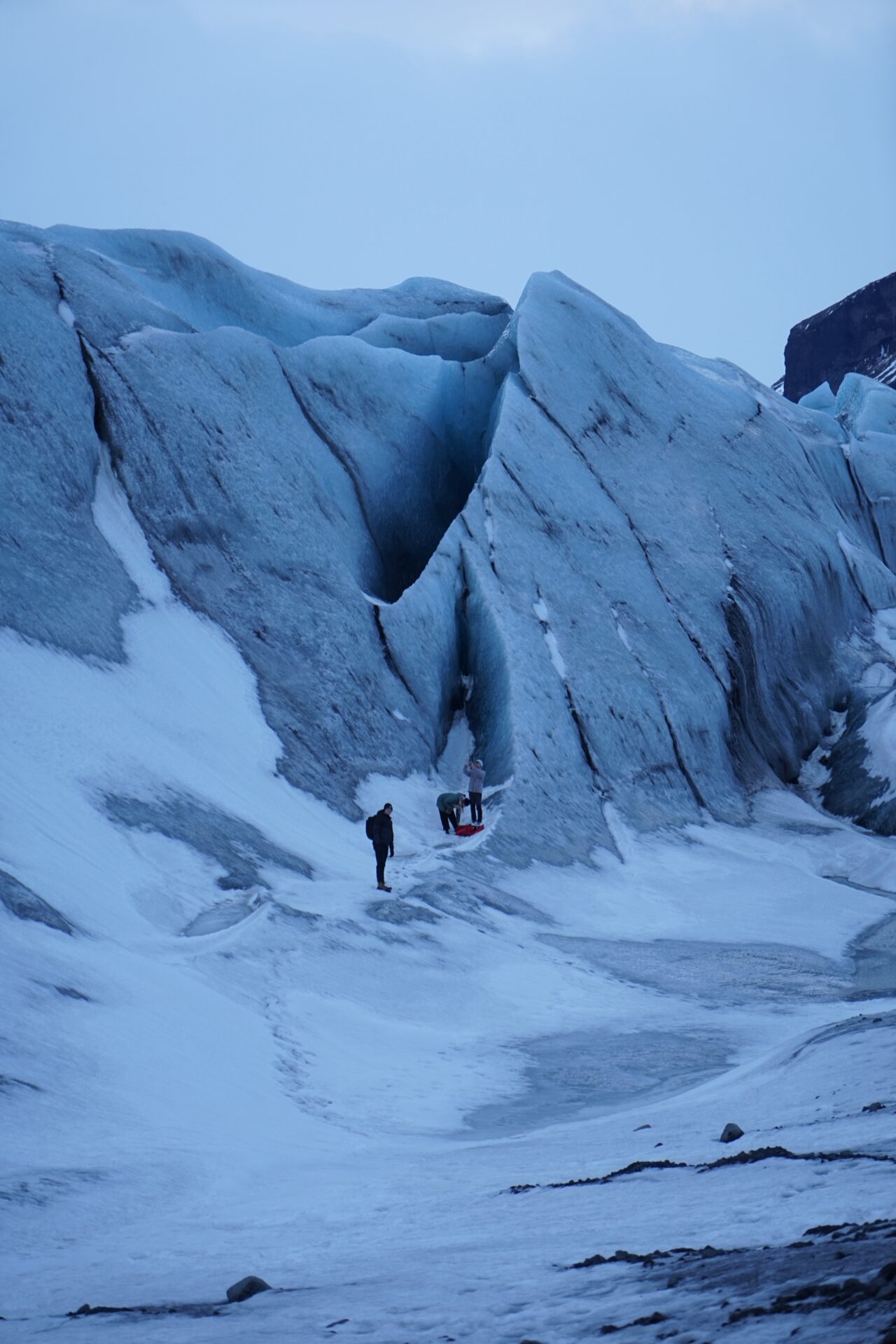
What was your best memory abroad?
If I have to mention a specific thing it is probably the final trip we did with the people we met there. We explored the whole country together and we’ve seen lots of different things. The best thing is that you experience such amazing things with people you barely knew before, but now feel family. Overall I would say my best memory is the special moments you get to share with the people you meet there. I know it sounds cliché, but for sure you will make friends for life.
8. Contact Details
Would you like to ask Stijn more questions about his exchange? Send him a mail: stijnvantrijp@gmail.com

